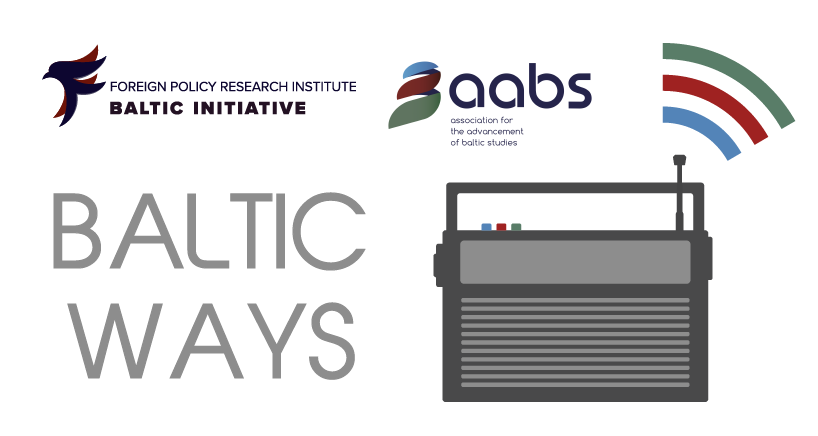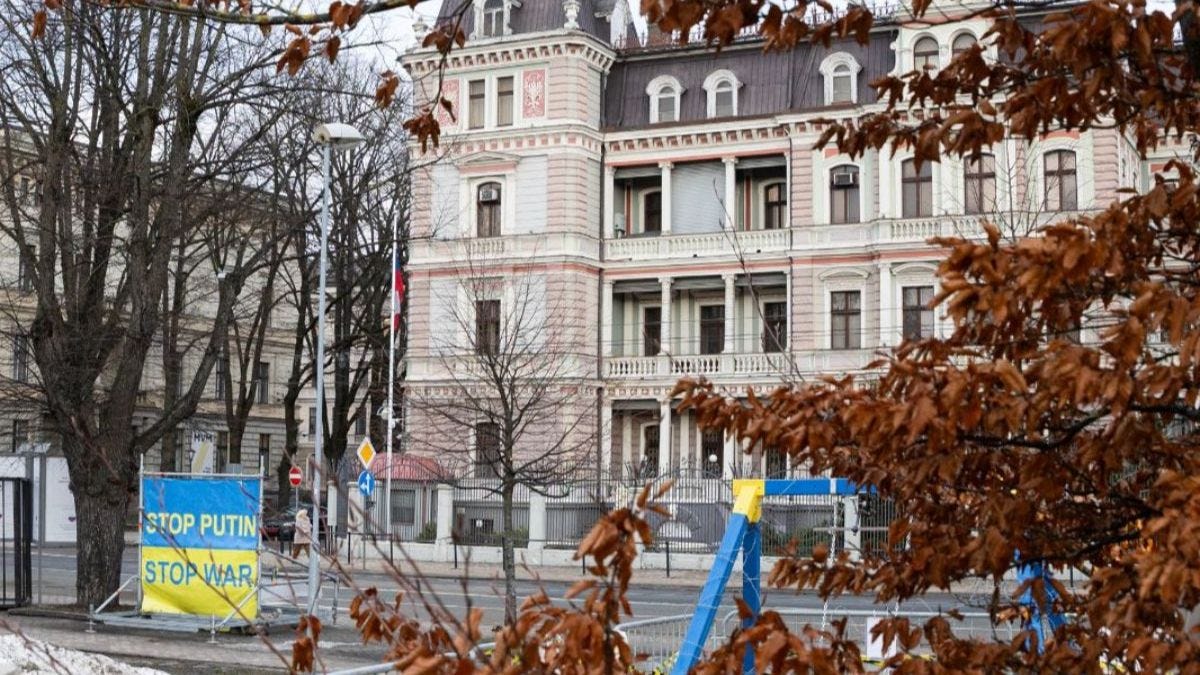Baltic Roundup | January 2024
January 2024
During the international conference "Russia's War on Children" the installation "Krivijas laupīte" was placed in front of the Russian Embassy in Riga (Flickr | Latvian Foreign Embassy)
Dear readers,
Here's a look at the start of 2024 in the Baltic states. Three decades on, Lithuania's public broadcaster LRT takes a deep dive into the world's support for the country during the January events of 1991 and how LRT operated for 222 days while Soviet forces occupied their studios.
SECURITY
Tatjana Ždanoka, a Member of the European Parliament from Latvia, has been working with Russia's Federal Security Service (FSB) since at least 2004, leaked emails show. In collaboration with Estonian, Latvian, and Swedish outlets, investigative journalism site The Insider reported on Ždanoka's correspondence with Russian handlers, including her work to foster pro-Kremlin sentiment. Ždanoka, a co-founder of the Latvian Russian Union who previously sat with the Greens/EFA group in the EP, was one of 13 MEPs who did not vote to condemn Russia's invasion of Ukraine and was subsequently expelled from the group. Other Latvian MEPs warned that Ždanoka is not the only Russian asset in the parliament. And in Estonia, authorities detained Viacheslav Morozov, a professor at the University of Tartu, on suspicion of espionage.
NATO launched Steadfast Defender 2024 at the end of the month. It's the alliance's largest military exercise since the Cold War, with some 90,000 troops from all 31 NATO countries and Sweden participating. Military drills will take place in two parts from January until May, incorporating land, air, sea, cyber, and space operations in the Baltic Sea region and other key countries.
The Baltic states agreed to build a common defensive line along their borders with Russia and Belarus. For the Baltic Bulletin, Lukas Milevski examines the origins, challenges, and operational-strategic implications of this large-scale project.
UKRAINE
Ukrainian President Volodymyr Zelenskiy visited Vilnius, Riga, and Tallinn to show his country's gratitude for “the uncompromising support for Ukraine since 2014 and especially now, during Russia’s full-scale aggression.” At the end of the month, First Lady Olena Zelenska was in Riga, participating in a conference on Russia's abduction of Ukrainian children.
The European Union reached a unanimous 27-member deal to include 50 billion euros for Ukraine in its budget over the next three years. Hungary's Viktor Orbán vetoed similar budget talks in December. Ahead of the meeting, Estonia's Kaja Kallas criticized Orbán's outsized role in negotiations, "Viktor definitely wants to be the center of attention every time we are here, but it shouldn't be like this. I don't want to use the word blackmail, but I don't know another better word."
ECONOMY & LABOR
Lithuanian farmers joined their counterparts in other European countries to protest agricultural policies, lining farm machinery along Vilnius' main boulevard. They are calling for an end to the transit of Russian grain through the country and protesting issues related to fuel taxes, the cost of milk, and environmental protection, some of which are EU-level policies. Latvian farmers also concerned about Russian and Belarusian imports, among other issues, staged local protests in early February, threatening to bring their equipment to Riga on Feb. 12 if no solutions are reached.
Thousands of Estonian teachers went on a week-long strike at the end of January over pay increases. The Estonian Education Personnel Union ended the work stoppage after accepting the government's proposal to allocate an additional 5.7 million euros for salary increases, with promises to return to the negotiating table. The strike prompted a nearly 20% increase in the union's membership. And, as Estonia prepares for upcoming transitions to Estonian-language education, the Ministry of Education reports that nearly 2,000 teachers do not yet have sufficient Estonian language skills, though more than half are taking courses.
Following public outcry, Latvia's postal service halted plans announced in January to close or reorganize more than half of its post offices across the country, which would have left the largest municipality with no offices and hugely increased distances for many. Latvijas Pasts is a state-owned joint stock company, not a public institution, and says it suffers financially as letters and subscriptions decline. Minister of Transport Kaspars Briškens confirmed that “the former, distinctly chaotic reform has been put on hold.”
LAW
Lithuania will pay 100,000 euros in damages to Saudi national Mustafa al-Hawsawi after the European Court of Human Rights concluded his rights were violated while he was unlawfully detained at a suspected CIA black site in Lithuania between 2005 and 2006. Currently held in Guantanamo Bay, the US alleges al-Hawsawi was involved in the 9/11 attacks. In 2018, the court found that the CIA had held another Saudi national in Lithuania.
Aitäh, paldies and ačiū,
Indra Ekmanis
Baltic Bulletin Editor
CALL FOR ARTICLES
FPRI invites article contributions for the Baltic Bulletin. We are particularly interested in pieces covering NATO, support for Ukraine, cybersecurity, and domestic politics. We welcome pitches at iekmanis@fpri.org.
Catch up on recent episodes of the Baltic Ways podcast.
New episodes are coming soon!






